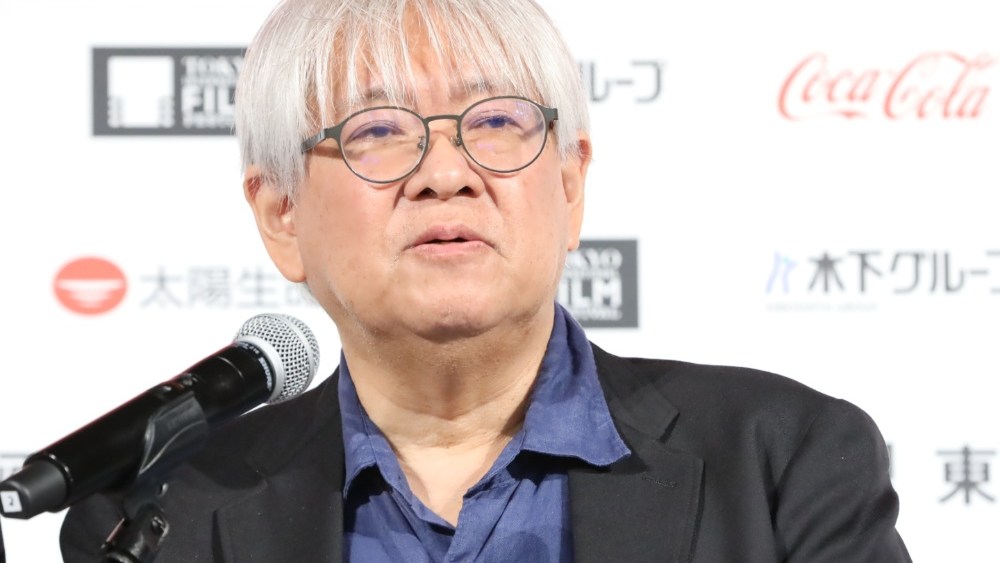Shozo Ichiyama, the Tokyo International Film Festival’s programming director, has been curating films since the 1990s and has weathered the dramatic shift from 35mm to digital without changing his fundamental philosophy.
“Even though it has become digital, the expression of movies hasn’t changed much,” Ichiyama tells Variety. “So I don’t think my programming has fundamentally changed.”
He referred to a 2000 Cannes talk on the impact of digital, noting that while some French directors expressed concerns, filmmaker Kiyoshi Kurosawa said his approach was consistent regardless of format.
Ichiyama says the competition selection is the boldest programming move for TIFF 2025. “I think it was a challenging selection that blended different genres,” he says. “We have a wide range of works, from works with entertainment elements to experimental films and documentaries, and we have a lineup that is difficult to compare.”
Although the competition includes filmmakers from Thailand to North Macedonia to Palestine, Ilyama insists that regional balance is not the main goal. “We primarily prioritize quality over regional balance in our selection process,” he explains. “This year, coincidentally, we have created a lineup that is diverse in terms of the nationalities of the countries of origin.”
TIFF’s international competition places particular emphasis on Asian premieres rather than world premieres, which Ichiyama argues is a strategic choice in the streaming era. “The need to be obsessed with world premieres seems to have diminished,” he says, noting that films can now be accessed through streaming platforms right after the festival.
But he acknowledges that this approach has limitations. “We believe that there is little point in screening films in competition at TIFF that have already been shown in competition at major film festivals such as Cannes, Venice, Berlin, Locarno, and San Sebastian, so we introduce such films in the Gala Selection and World Focus sections.”
On the festival vs. streaming debate, Ichiyama is unequivocal about the value of theatrical premieres. “It’s more beneficial for a film to be released in theaters and film festivals,” he said, citing Spike Lee’s “The Heist to Roast,” a remake of Akira Kurosawa’s “High and Low,” which was available exclusively on streaming in Japan. “Most people in Japan don’t know about its existence,” he points out. “It’s a shame that a film that could have gotten so much attention is completely ignored when it doesn’t.”
The 2025 edition commemorates the 100th anniversary of Yukio Mishima’s birth, and TIFF will spotlight director Paul Schrader’s Mishima: Four Chapters of a Life, as well as screening a new documentary and two Japanese films based on Mishima’s works for the first time in Japan. “Mishima’s work is still widely read in Japan, and I hope that this multifaceted program will once again shine a spotlight on his work,” Ichiyama says.
Asked about the balance between artistic value and commercial potential, Mr. Ichiyama cited Yuichiro Sakashita’s work in this year’s competition, “Blonde,” as an example. “It may look commercial at first glance, but it shows the director’s unique personality,” he says. “Of course, the competition also includes works whose commercial potential is considered very difficult.”
TIFF has expanded its youth and education programs and launched the Asia Student Film Conference this year. This is the festival’s first official short film competition, but it is limited to films from film schools. “There are many hidden gems among the younger generation, waiting to be discovered,” says Ichiyama. “We hope that future masters will emerge from this new section.”
Establishing a broader short film competition, like Europe’s major film festivals, “remains one of the challenges ahead,” he added.
When asked about the essence of TIFF in 2025, Ichiyama said, “Looking at the selection of works, I think the current chaotic world situation is reflected in various ways.”

